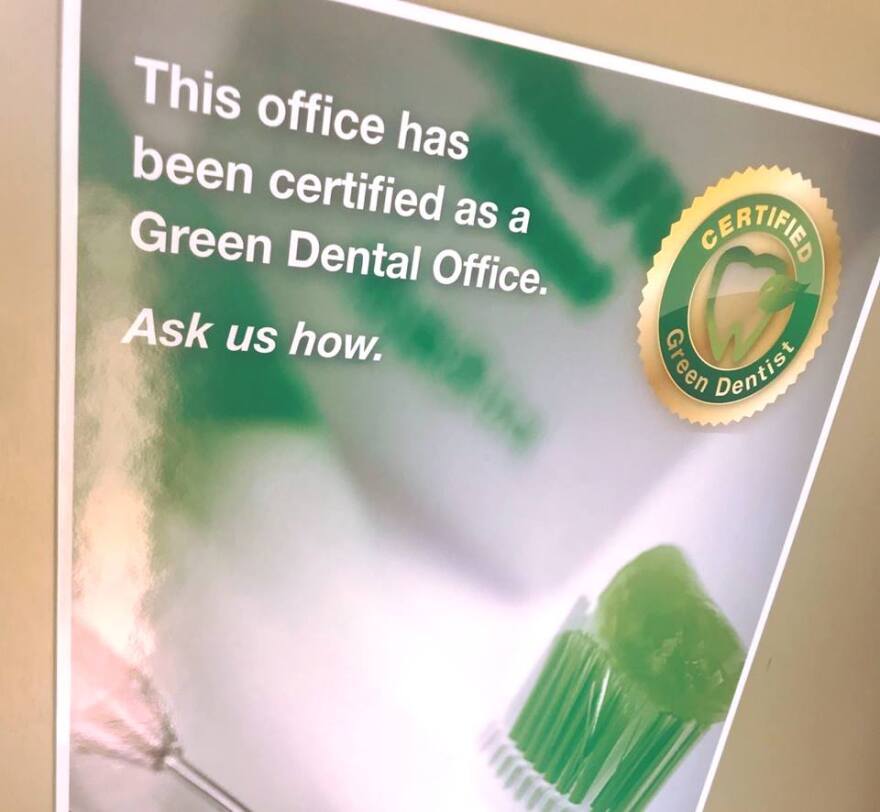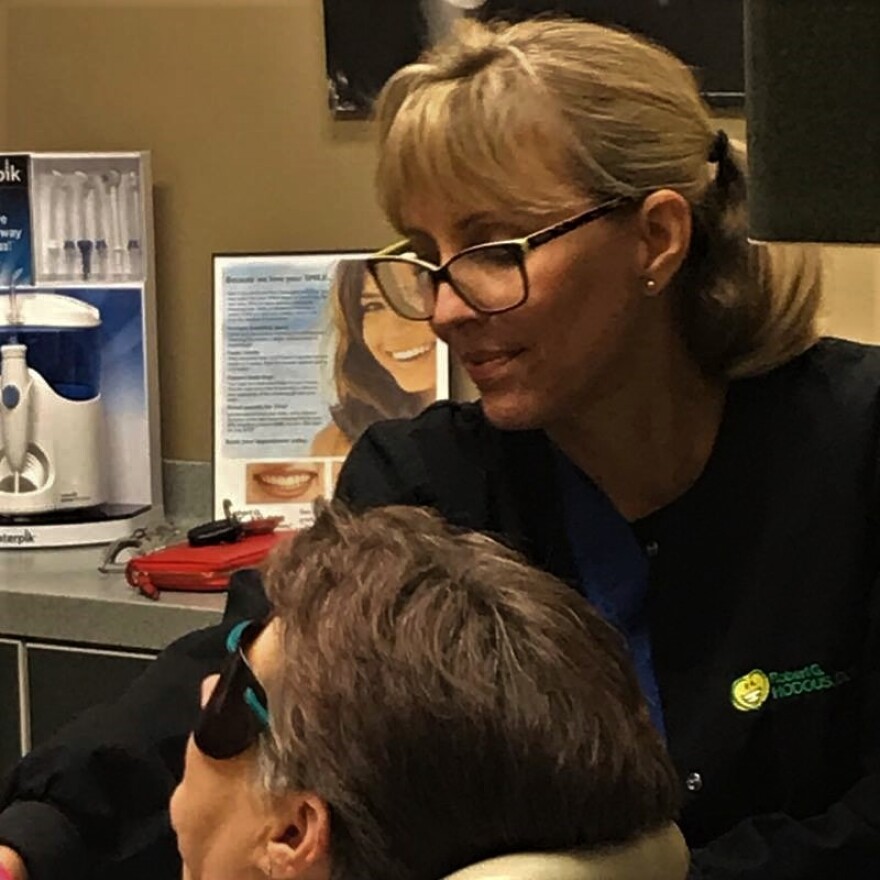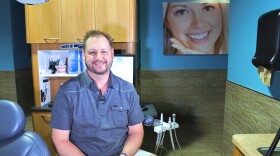Increasingly, businesses around the world are choosing to go green. In Fayetteville, Arkanssas one dentist has long been leading the way towards environmental sustainable dentistry.
Since 2008, Dr. Robert Hodous, DDS, has been reducing dental toxic waste in his practice as a broad mission.
“I look at it as solid waste, pollution to the environment, and to potentially [my] office," he says.
Dental clinics contribute significant amounts of environmental waste, according to the Eco-Dentistry Association. That includes disposable sterilization products, chemicals from traditional x-ray fixers, heavy metals and lead foils.
The Eco-Dentistry Association currently is the only national green dentist certifying board in the U.S. But Hodous, who is not member, instead employs a checklist of waste reduction practices based on EPA and dental industry standards.
He's invested in digital x-ray technology to reduce radiation exposure to patients and uses paperless billing, water-flow restricting faucets and recyclable equipment when possible. He also distills his own water to sterilize equipment and has installed a mercury separator. A type of tooth filling amalgam made with mercury, silver, tin and copper is deemed safe by the American Dental Association. But according to the World Health Organization, exposure to small amounts of mercury in the environment may cause serious health problems, including impaired fetal and early childhood development. Mercury may also have toxic effects on the nervous, digestive and immune systems, as well as on lungs, kidneys, skin and eyes.
This is not just my mouth, it's my whole body, and it's outside, it's my environment, it's where I live. - Robert Hodous, DDS.
“I actually scavenge mercury so it doesn't get into the [waste] system," Hodous says. "We haven't done mercury fillings for 35 years in my practice, but we still remove quite a few of them. And that [mercury] creates a waste that just goes into the sewer system and eventually into our environment.”
The Environmental Protection Agency estimates 103,000 dental offices still use or remove mercury amalgam in the United States, releasing 5.1 tons of mercury into the environment each year.
Currently 12 states have mandatory regulations on mercury waste for dentists, but a pending new dental effluent rule from EPA will require most practices to install a mercury pump, similar to the one Hodous uses, by July 2020.

Arkansas is not among the 12 states already implementing these changes. Nor do the Arkansas State Board of Dental Examiners and Arkansas State Dental Association offer “green” certification, track or regulate dentists who advertise environmentally sustainable practices. Hodous is the only certified green dentist in Arkansas, through the Green Dental Marketing Group, which he helped to found.
“[Dentists] have choices about what we use, in terms of equipment," he explains. "Also we have an intimate relationship with the patients that I think a lot of businesses may not,” referring to an increasing number of consumers specifically seeking green dental care.
Marlene Blair, an independent oral hygienist who is a member of Dr. Hodous's holistic team, says oral health and the environment are inseparable, which is why she stresses using natural alternatives with patients.

“I myself tend to like to use the least chemical products possible just because of the oral microbiome," she says. "It's an active living world inside your mouth.”
A healthy oral microbiome, Blair says, which consists of beneficial bacteria that inhabit the gums, teeth and tongue can contribute to overall health. Emerging research indicates that an impaired microbiome can lead to health problems including cardiac disease. Her practice underscores Hodous’ message: that a healthy environment contributes to oral health.
“There's more to it than just a cleaning," Hodous adds. "This is not just my mouth, it's my whole body, and it's outside, it's my environment, it's where I live."
This story is produced by Arkansas Public Media, a statewide journalism collaboration among partner stations KUAR, KUAF, KASU and KTXK, and community partners AETN, and the Butler Center for Arkansas Studies. Arkansas Public Media’s series on oral health in Arkansas is funded through a grant from the Delta Dental of Arkansas Foundation, and with the support of its partner stations.






